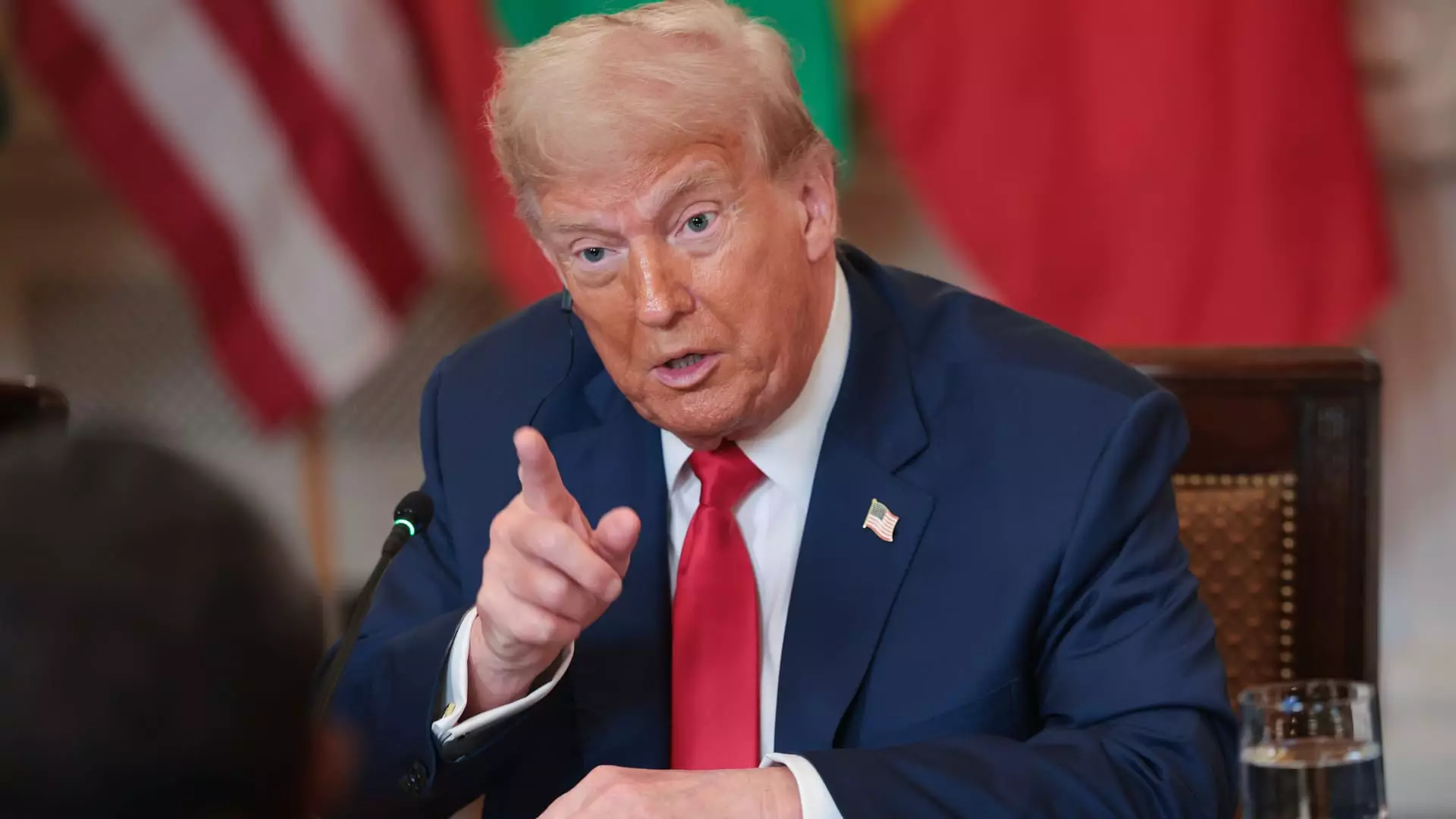In his latest display of economic bravado, former President Donald Trump has again twisted international trade into a political weapon, this time targeting Brazil with a punitive 50% import tariff. What’s startling about this move isn’t just the sheer magnitude of the tariff — a massive escalation from a previous 10% — but the underlying intent: to punish a foreign government for internal political struggles and legal proceedings that Trump personally disapproves of. This peevish tactic cynically undermines the principles of fair trade and diplomatic consistency, making a mockery of the idea that economic policy should serve mutual benefit rather than personal retribution.
Applying tariffs as political sanctions not only barrels ahead of diplomatic norms but also risks unleashing a cascade of retaliatory measures. In a global economy increasingly interconnected, such brinkmanship threatens to spiral into a destructive trade war that hurts consumers and disrupts businesses across the spectrum. Instead of fostering cooperation, Trump’s approach exemplifies a punitive mindset that leverages economic leverage for ideological vendettas. This kind of conduct is fundamentally detrimental; it undercuts foreign relations and breeds instability. Moreover, threatening to manipulate tariffs based on internal political disputes is neither farsighted nor responsible — it’s a reckless gamble that endangers the fabric of international diplomacy.
The Illusion of Economic Fairness in Trump’s Narrative
Trump’s rhetoric portrays his tariffs as rectifying unjust trade imbalances with Brazil, yet the facts tell a different story. While he claims that the current relationship is “unfair,” U.S. trade data from 2024 reveals a surplus of $7.4 billion in favor of the United States — hardly the picture of a trade deficit that warrants sweeping punitive measures. This discrepancy between narrative and reality exposes a fundamental flaw: the tariffs are not driven by genuine economic concern but by political symbolism.
The justification that these tariffs are necessary to counteract “unsustainable trade deficits” becomes even more tenuous considering the actual trade figures. Trump’s framing of Brazil as a manipulative actor on digital trade and fair practices feels more like an excuse to escalate tariffs rather than a rational critique of Brazil’s economic policies. It’s a classic case of selective outrage, weaponizing trade policies as a means to pressure Brazil’s government around internal political issues. This perspective ignores the fact that global trade inherently involves complex negotiations and mutual adjustments, not unilateral tariffs designed to punish or threaten allies.
The Dangerous Path of Trade Disruptions and Economic Instability
The broader implications of Trump’s tariff strategy extend beyond Brazil; they threaten to undermine the stability of global trade networks. Extending tariffs to as many as 21 countries with rates up to 50% reflects a mentality that values protectionism over collaboration. These punitive tariffs, coupled with the ominous language about “adjustments” based on diplomatic relationships, paint a picture of economic coercion that could destabilize markets.
The potential for retaliation is high. When tariffs are used as leverage, countries are likely to respond with their own tariffs or non-tariff barriers, spawning a tit-for-tat cycle that damages economies on both sides. American consumers and industries will bear the brunt of such escalation, facing higher prices and reduced access to international markets. This reckless approach disregards the principles of economic interdependence and mutual growth, favoring short-term political wins over sustainable, long-term prosperity.
Furthermore, Trump’s focus on digital trade and unfair practices raises questions about his grasp of the digital economy’s complexity. While concerns about certain digital tactics are valid, resorting to tariffs as a punitive measure may stifle innovation and cooperation in this crucial sector. It risks turning long-standing international efforts to establish fair digital trade rules into a battleground of tariffs and protectionist measures.
The Center-Left Perspective: Advocating for Balanced and Rational Trade Policies
From a center-left perspective, Donald Trump’s aggressive tariff tactics epitomize a dangerous game of economic brinkmanship. In a world where cooperation, multilateralism, and fair rules are essential for addressing global challenges — climate change, public health, technological innovation — resorting to tariffs motivated by political grievances only exacerbates divisions. Such policies threaten to undo the progress made toward a more integrated global economy, replacing dialogue with aggression.
At their core, smarter trade strategies should aim to foster fairness, address genuine issues through negotiation, and protect workers and consumers alike. It’s crucial to recognize that tariffs, when used selectively and judiciously, can serve as tools for leverage without spiraling into violence. But weaponizing tariffs as a form of political punishment reveals a fundamental misunderstanding of economic diplomacy — one that prioritizes short-term political gain over shared prosperity.
The idea that tariffs can be leveled as retribution for internal political controversies is both shortsighted and dangerous. It signals a departure from the cooperative internationalist spirit that has historically driven positive economic development and stability. Instead, it fosters an environment of suspicion and hostility that threatens to unravel the fragile fabric of global commerce and diplomacy.
While concerns about trade imbalances, digital fair practices, and sovereignty are valid and should be addressed through thoughtful policies, employing tariffs as a stick to beat countries into political submission is not the answer. Instead, a balanced approach rooted in multilateral dialogue and respect for international norms is essential to build resilient and equitable global trade networks. Only then can economic policy serve the broader goals of fair growth, innovation, and cooperation, rather than becoming a tool for petty retaliation.


Leave a Reply